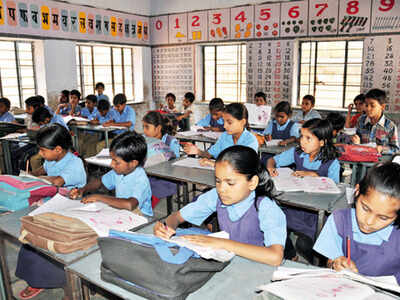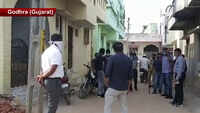
AHMEDABAD: With a tinge of scepticism the new National Education Policy, 2020 was largely welcomed by educationists in Gujarat. The policy’s focus on inclusiveness, promoting local languages, innovation and research to meet changing population dynamics and aim to arm children with the skill sets required for a more competitive world received a thumbs-up.
Kirit Joshi, former principal of Diwan Ballubhai school, who has more than 25 years of experience, welcomed the decision making the mother tongue the medium of instruction at all schools up to Class V, which has been reintroduced afters several decades. However, Joshi is sceptical on the overall implementation of NEP 2020. “Training teachers in new evaluation methods to meet NEP standards will be vital to the policy’s success. Also, we spend less than 2% of our nation’s GDP on education. The new NEP will require at least 6%.”
M N Patel, former vice chancellor of Gujarat University is concerned that several colleges will lose their university affiliation. Though Patel welcomed that most research work would aim to solve societal issues, he said, “Restricted institutional funding and lack of teaching staff in colleges will be major impediments for colleges to climb the new NEP ranking structure. Digital or online learning will lead to unemployment of local teachers,” Patel says. He also pointed out that the existing duration of two years for a postgraduate degree was introduced to allow students time to submit dissertation work. “A one-year postgraduate degree as per the NEP is not enough time for students.”
Another educationist, M P Chandran, welcomed the policy, “Multiple regulators will not fall in the path. The emphasis will now be on foundational literacy and numeracy, and no separation between academic streams, extracurricular and vocational streams will help every child to bloom individually. The other highlight of the NEP is that it offers flexibility of subjects in higher education.”
“Hasmukh Hingu, former chairman of Gujarat Secondary and Higher Secondary Education Board (HSHSEB) said, “The Class X exam will be optional. Students will be evaluated on their learning outcomes. These are sea changes that our education system has to adapt to. A lack of cohesive implementation may lead to paralysis.”
His contemporary, Bhaskar Patel, who has 35 years of experience managing schools, said, “The NEP should throw some light on small schools who have less than 500 children. More emphasis will be on employing teachers who are well versed in local dialects and culture.”
Kirit Joshi, former principal of Diwan Ballubhai school, who has more than 25 years of experience, welcomed the decision making the mother tongue the medium of instruction at all schools up to Class V, which has been reintroduced afters several decades. However, Joshi is sceptical on the overall implementation of NEP 2020. “Training teachers in new evaluation methods to meet NEP standards will be vital to the policy’s success. Also, we spend less than 2% of our nation’s GDP on education. The new NEP will require at least 6%.”
M N Patel, former vice chancellor of Gujarat University is concerned that several colleges will lose their university affiliation. Though Patel welcomed that most research work would aim to solve societal issues, he said, “Restricted institutional funding and lack of teaching staff in colleges will be major impediments for colleges to climb the new NEP ranking structure. Digital or online learning will lead to unemployment of local teachers,” Patel says. He also pointed out that the existing duration of two years for a postgraduate degree was introduced to allow students time to submit dissertation work. “A one-year postgraduate degree as per the NEP is not enough time for students.”
Another educationist, M P Chandran, welcomed the policy, “Multiple regulators will not fall in the path. The emphasis will now be on foundational literacy and numeracy, and no separation between academic streams, extracurricular and vocational streams will help every child to bloom individually. The other highlight of the NEP is that it offers flexibility of subjects in higher education.”
“Hasmukh Hingu, former chairman of Gujarat Secondary and Higher Secondary Education Board (HSHSEB) said, “The Class X exam will be optional. Students will be evaluated on their learning outcomes. These are sea changes that our education system has to adapt to. A lack of cohesive implementation may lead to paralysis.”
His contemporary, Bhaskar Patel, who has 35 years of experience managing schools, said, “The NEP should throw some light on small schools who have less than 500 children. More emphasis will be on employing teachers who are well versed in local dialects and culture.”

Coronavirus outbreak
Trending Topics
LATEST VIDEOS
More from TOI
Navbharat Times
Featured Today in Travel
Quick Links
Kerala Coronavirus Helpline NumberHaryana Coronavirus Helpline NumberUP Coronavirus Helpline NumberBareilly NewsBhopal NewsCoronavirus in DelhiCoronavirus in HyderabadCoronavirus in IndiaCoronavirus symptomsCoronavirusRajasthan Coronavirus Helpline NumberAditya ThackerayShiv SenaFire in MumbaiAP Coronavirus Helpline NumberArvind KejriwalJammu Kashmir Coronavirus Helpline NumberSrinagar encounter
Get the app









